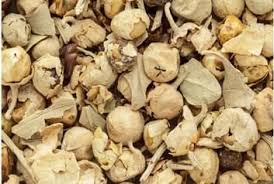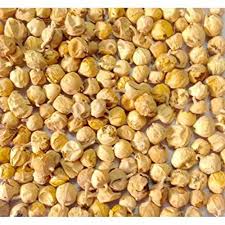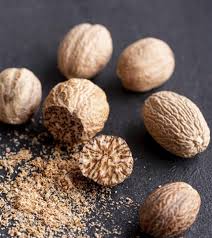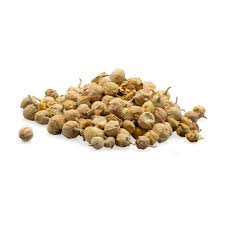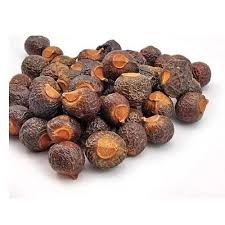How Paneer Phool May Help with Fatty Liver Disease
Fatty liver disease, a growing health concern worldwide, is often linked to poor diet, obesity, and a sedentary lifestyle. While conventional medicine offers treatments, many people are now turning to natural and Ayurvedic remedies for liver health. One such powerful herb is Paneer Phool (also known as Indian Rennet or Withania Coagulans). Used in traditional Indian medicine for centuries, Paneer Phool has shown promising effects in supporting liver detoxification, reducing fat accumulation, and improving metabolic functions. This article explores how Paneer Phool may help manage or reduce symptoms of fatty liver disease naturally.
Long Description:
✅ What is Paneer Phool?
Paneer Phool, also known as Withania Coagulans, is a medicinal herb widely used in Ayurvedic medicine. It belongs to the same family as Ashwagandha and is commonly referred to as “Indian Rennet.” Traditionally, it is known for its benefits in treating kidney issues, diabetes, and various metabolic disorders. Its antioxidant and anti-inflammatory properties make it a valuable addition to holistic health treatments.
✅ Understanding Fatty Liver Disease:
Fatty liver disease, or hepatic steatosis, occurs when excess fat builds up in the liver. It is classified into two main types:
- NAFLD (Non-Alcoholic Fatty Liver Disease) – caused by obesity, insulin resistance, or high cholesterol.
- AFLD (Alcoholic Fatty Liver Disease) – caused by excessive alcohol consumption.
Left untreated, it can progress to liver inflammation, fibrosis, and even cirrhosis.
✅ Why Consider Paneer Phool for Liver Health?
Paneer Phool is gaining attention for its liver-protective qualities. Here’s why it stands out as a natural remedy for fatty liver:
- Rich in Antioxidants – Fights oxidative stress in liver cells.
- Reduces Inflammation – Helps soothe inflamed liver tissues.
- Improves Lipid Metabolism – Assists in breaking down fat in the liver.
- Supports Insulin Sensitivity – Balances blood sugar, a key factor in NAFLD.
- Promotes Detoxification – Flushes out liver toxins.
✅ Scientific Insights on Paneer Phool and Liver Support:
Studies conducted on the extract of Withania Coagulans have shown:
- Hepatoprotective Activity: Research indicates that the herb may protect liver cells from damage induced by toxins and high-fat diets.
- Hypoglycemic Properties: Paneer Phool lowers blood sugar levels, indirectly benefiting the liver by reducing insulin resistance.
- Anti-obesity Action: Its fat-regulating ability contributes to reducing liver fat buildup.
While human clinical trials are limited, animal studies and traditional usage provide strong anecdotal evidence.
✅ How to Use Paneer Phool for Fatty Liver:
There are multiple safe and effective ways to consume Paneer Phool to support your liver:
1. Decoction (Herbal Water):
- Soak 5-7 pieces of dried Paneer Phool in water overnight.
- Boil this in the morning, strain, and drink on an empty stomach.
2. Paneer Phool Powder:
- Grind dried flowers into powder.
- Take 1 teaspoon with warm water or honey before meals.
3. Ayurvedic Capsule Form:
- Available in the market under various herbal supplement brands.
- Follow dosage instructions or consult an Ayurvedic practitioner.
✅ Diet and Lifestyle Tips Alongside Paneer Phool:
Paneer Phool works best when combined with a liver-friendly lifestyle:
- Eat a clean, low-fat diet rich in vegetables, fruits, and whole grains.
- Avoid alcohol and processed sugar, which worsen liver health.
- Exercise regularly to reduce liver fat and improve metabolism.
- Stay hydrated to assist natural detoxification.
- Avoid self-medication and monitor liver enzymes regularly with a healthcare provider.
✅ Precautions and Side Effects:
Though Paneer Phool is considered safe for most, keep the following in mind:
- Pregnant or breastfeeding women should consult a healthcare provider before use.
- Diabetics should monitor blood sugar levels closely, as Paneer Phool may lower glucose significantly.
- Always start with a small dose to assess tolerance.
- Overuse may lead to gastrointestinal discomfort.
✅ Real-Life Testimonies and User Feedback:
Many users have shared positive results when using Paneer Phool for fatty liver:
- Improved digestion and reduced bloating.
- Better blood sugar control.
- Weight loss and reduced liver fat as seen in follow-up tests.
Although individual results vary, the majority report improved overall well-being.
✅ Conclusion:
Incorporating Paneer Phool into your daily routine can be a powerful step toward naturally managing fatty liver disease. Its traditional use in Ayurveda, combined with its liver-protecting properties, makes it a valuable herbal ally. However, it should complement—not replace—medical advice. A healthy diet, active lifestyle, and regular health checkups, along with natural herbs like Paneer Phool, can pave the way for improved liver health and holistic wellness.






